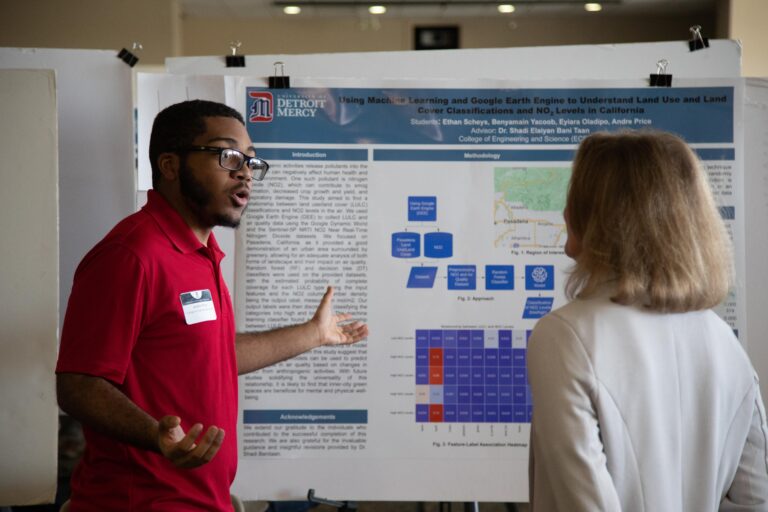
Whether you’re just curious or already passionate about diving deeper into your field, getting involved in research is a rewarding way to build skills, connect with mentors and make a real impact.
OURS+GO encourages any undergraduate students in the College of Engineering & Science to consider getting involved with undergraduate research! You don’t need previous experience. Curiosity, commitment and a willingness to learn are the most important starting points.
The first step in any research or creative project is figuring out what interests you. You probably have many interests that feel completely disconnected from each other. Not a problem. Think about what you’d like to learn.
The goal of this step should be identifying things you’re interested in for whatever reason and want to learn more about!
Ann Serra, Dir. OSPRA
serraam@udmercy.edu
(313) 993-1469
CAYUSE SUPPORT
Michele Favoretto
favoremi@udmercy.edu
(313) 993-1428
Required Forms/Templates

Working with OSPRA from project concept through award has significantly increased my awareness and understanding of the processes and UDM policies.
OSPRA offers a series of workshops throughout the academic year. Browse the workshop schedule and register today.
OSPRA Workshops offer the perfect opportunity to lean more about the sponsored research activities at UDM and gain an understanding of the process and policies. Register today.